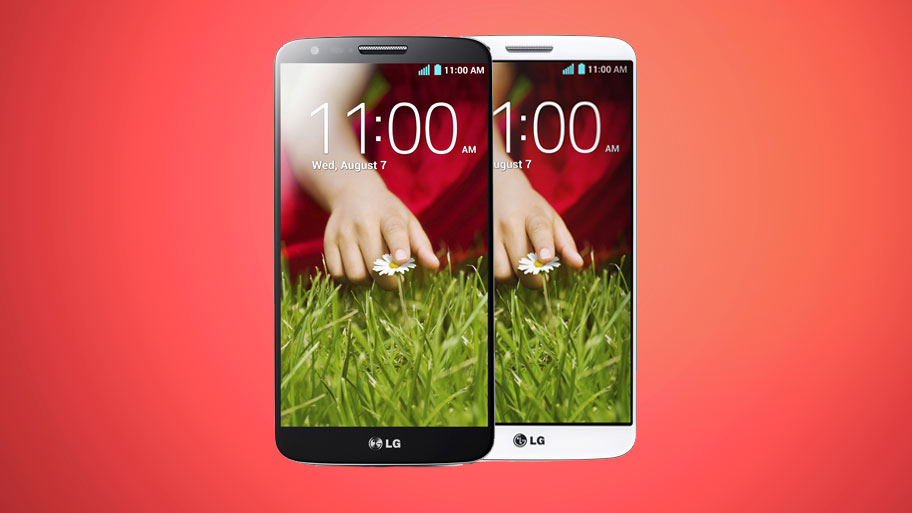Why you can trust TechRadar
The camera on the LG G2 is excellent. I'm very picky when it comes to how a device's camera performs, and I was very satisfied with the LG G2's camera.
It seems that manufacturers are really putting a strong emphasis on imaging these days. HTC, Nokia and Apple have stressed the strengths of their imaging systems - whether it's bigger pixels, larger sensors, better optics and image stabilization, the competition is a win-win for the consumer.
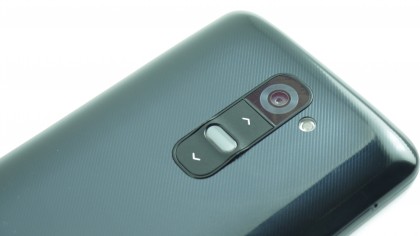
The 13MP shooter you'll find on the G2 will more than suffice for anything you could ever want to shoot with a smartphone. Whether you're shooting your lunch to post on Instagram, or a bathroom selfie for Facebook, the G2's camera won't disappoint.
It performs well in low light, optical image stabilization, or OIS, helps with both stills and video and detail and color are excellent.
By default, when you power on the camera, everything is set to auto. Focus is clustered in the middle with a number of focus points, but you can also tap to focus if you like.
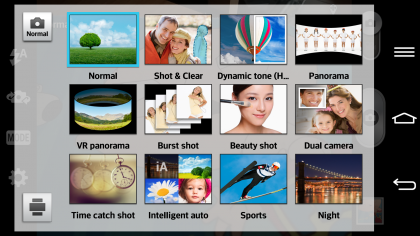
There are a number of scenes to choose from, like Normal, HDR, Burst shot, Panorama and more, and another scene section that includes Portrait, Landscape, Sunset, Night and others.
The camera's settings offer a number of customization options. You can adjust exposure compensation, focus modes, ISO, white balance and more.
Sign up for breaking news, reviews, opinion, top tech deals, and more.
You'll also have the option for using the volume buttons to activate the shutter, but I would recommend against this due to its awkward placement and proximity to the lens. I don't know why LG would've included this option.
Photos look sharp and clear. Colors are excellent, especially when you shoot in good light, and details are incredible. Of course, a lot of that has to do with the processing, sharpening and everything else the G2 does with the 13MP images.
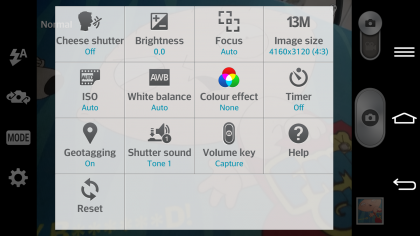
HDR looks natural, but as with HDR photos that look more natural, you can still lose a lot of details in highlights and shadows if the scene's dynamic range is dramatic.
In terms of what I've come to expect from a smartphone camera, there really isn't anything to complain about with the LG G2.
It doesn't have the same issues with metering as the Moto X, and it keeps more details than the HTC One thanks to its huge megapixel count. Perhaps it's only trumped by the iPhone for image quality, and the Lumia 1020 for image quality and low-light performance. That's not so bad.
I'm also happy to see that the tap-to-focus will meter for the selected area. Some other Android devices will only focus, and you have to manually change exposure, which can become annoying.
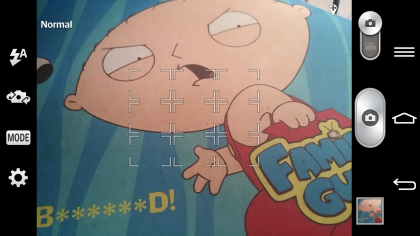
Overall, still images are excellent. That leaves video. Video quality from the LG G2 camera is great. Optical image stabilization helps quite a bit, though you still have to keep a steady hand. It isn't as good as the Lumia 1020's stabilization system, but it works well enough and beats the iPhone in terms of steadiness and smoothness.
Colours and video quality look good, although sound could be better. Sound quality is always something that needs a lot of work on a smartphone, but there's only so much that can be done with the physical constraints.
A microphone placed on the body of a camera, situated several feet away from an audio source, will never sound as good as having dedicated microphones. However, for what you might be shooting with a smartphone, it works just fine.
That's one thing to keep in mind when you're being bombarded with these great camera claims from smartphone manufacturers. In the end, these are still just smartphone cameras.
If you're looking for real, solid image quality, you'd go for a compact system camera or DSLR. And if you want to shoot great video, a DSLR or dedicated video camera will be your best bet.
